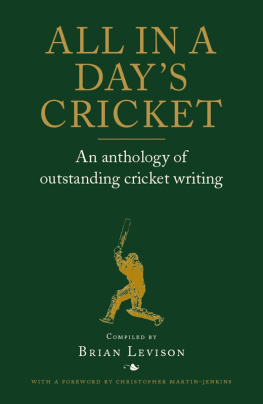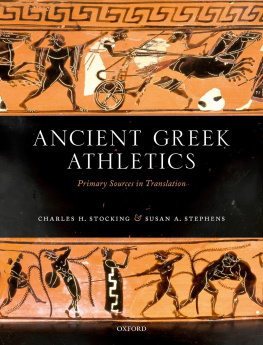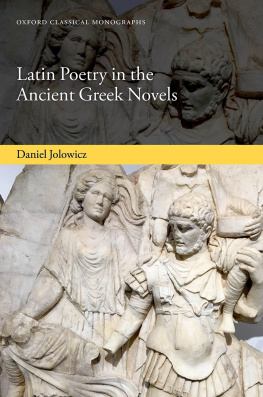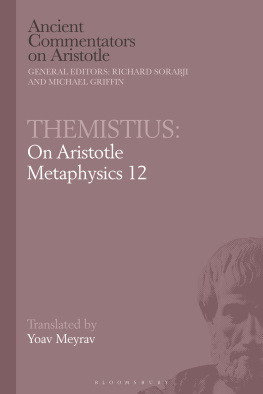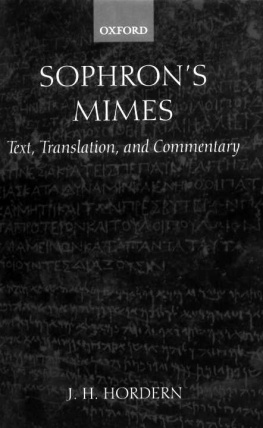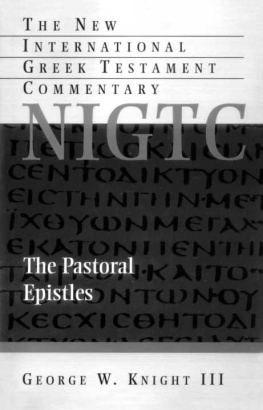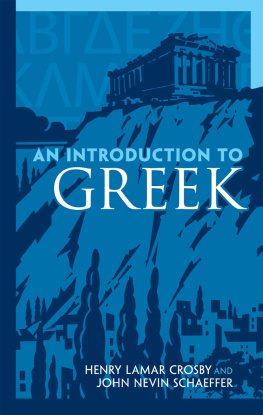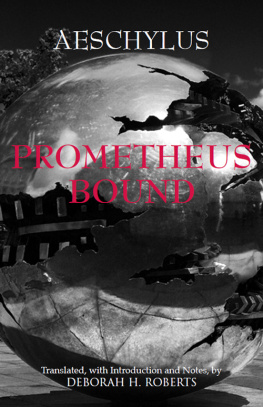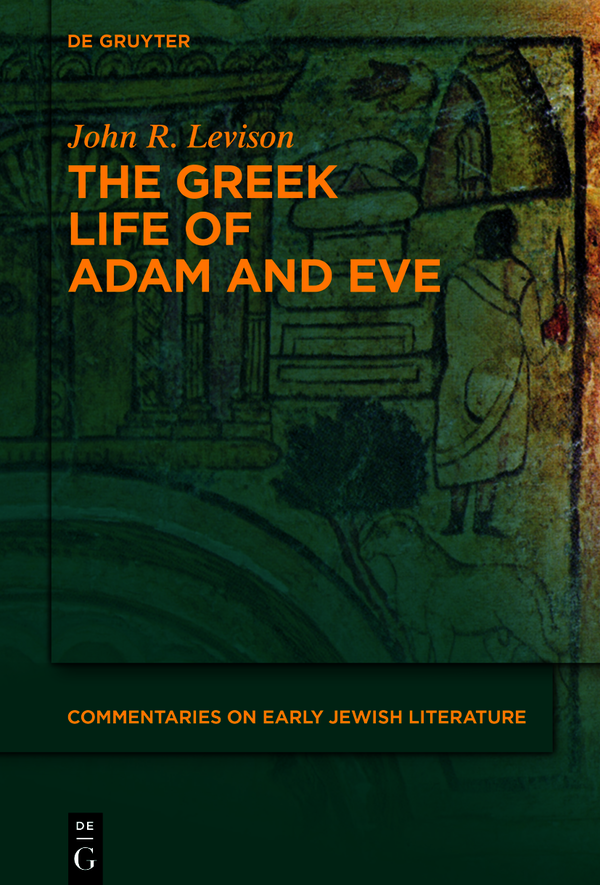Loren T. Stuckenbruck
Pieter W. Horst
James R. Mueller
The Deutsche Nationalbibliothek lists this publication in the Deutsche Nationalbibliografie; detailed bibliographic data are available on the Internet at http://dnb.dnb.de.
The Story in Outline
Israels storytelling begins in Edenand shortly afterwards in relative squalor east of Eden. Israels story of Adam and Eve, in short, is a tale of loss, a brooding epic of exile that mirrored Israels own experiences of loss and displacement. Nowhere is such devastating and disturbing loss more poignantly portrayed than in four Greek manuscripts that Constantin von Tischendorf, in the mid-1800s, wrested from obscurity. Imaginatively construed and painted in vivid detail, these stories, which reconfigure Genesis 1-5, are known now as the Life of Adam and Eve (LAE). They comprise a tantalizing tale of brother-murder (1.1-5.1), a heroic but failed quest to retrieve the oil of mercy from paradise to alleviate human pain (5.2-14.2), two autobiographical accounts of temptation and fall (7.1-8.2 and 14.3-30.1), and a vivid depiction of divine forgiveness (31.1-43.4).
LAE is preserved in several versions (see below), and its purpose differs according to which version is read. The dominant purpose of the Greek Life of Adam and Eve (GLAE) is to re-tell the stories of Adam Eve, Cain and Abel, and Seth in order to provide hope for its readers by presenting Adam as a forgiven sinner who endures the pain of existence, faces death with uncertainty, but receives mercy after death. GLAE can be divided into four neat sections, each of which can be encapsulated in a word:
patrimony
pain
parenesis
pardoning
Patrimony (1.1-5.1; retelling Gen 4:1-5:5). Long after the births of Cain and Abel, in a dreama nightmare, reallyEve learns of the murder of Abel by Cain. Patrimony, however, does not belong to Cain, to whom Adam must not, God commands, reveal the mystery that Adam knows. God promises instead that Seth will be born to replace Abel. As life goes on, Adamhe is given credit, not Evebears thirty sons and thirty daughters. After these births, Adam falls into an unknown condition and gathers his children around him in traditional testamentary fashion.
Pain (5.2-14.2). After having explained to his son Seth the nature of his condition as illness, Adam proposes that Seth and Eve should travel to paradise, beg God to send an angel into paradise to retrieve the oil of mercy, and return with the oil to alleviate Adams inscrutable suffering. This story (6.1-2; 9.1-3; 13.1-14.2) is interrupted twice, first by Adams autobiographical recollection of the first sin (6.3-8.2), then by a wild animal, which attacks Seth and accuses Eve of initiating, with her greed, the rebellion of the wild animals (10.1-12.2). The scene concludes when the archangel Michael denies Seths request. At this point in some Greek manuscripts, though not most, Michael, after denying their request, promises Seth eschatological resurrection. Seth and his mother return incapable of relieving Adams duress.
Parenesis (14.3-30.1; retelling Gen 3:1-24). After Seth and Eve return from paradise, Adam again indicts Eve, providing an occasion for her to reveal her own perspective on the first sin in what might be called Eves Testament. Eve recounts, in a flourish of biblical and unbiblical elements: the envy of the devil; the entrance of the serpent, the devils tool, into paradise; Eves inability to resist the devils trickery, as he speaks through the serpent; Eves taking of the fruit; Eves ability to persuade Adam to eat; Gods awesome entry into paradise on a chariot; the sentencing of Adam, Eve, and the serpent; and the expulsion of the first pair from paradise, despite angelic pleas for mercy.
Eves autobiography functions as parenesis, as ethical instruction. Eve ends her testament: Now therefore, my children, I have disclosed to you the way in which we were deceived. And you yourselvesguard yourselves so as not to disregard what is good (GLAE 30.1). Yet Eve does more than simply warn her children. She adopts the same framework to depict the process of deceit, with five identical steps, in the case of the serpent, herself, and Adam. In each case
the deceiver approaches and arouses desire (16.1; 18.1; 21.1);
the deceiver invites the soon-to-be deceived to follow (16.3; 18.1; 21.3);
the soon-to-be-deceived hesitates, saying, I fear lest the Lord God be angry with me (16.4; 18.2; 21.4);
the deceiver responds with the words, fear not, accompanied by a part-truth intended to allay fear (16.5; 18.3-4; 21.4); and
the deceived capitulates (17.1; 19.3; 21.5).
This pattern is repeated with variations to reinforce, as parenesis or ethical instruction, how Eves children can resist evil and hold to what is good. The deception of the serpent outlines the basic elements in the process of deception (GLAE 16). The deception of Eve exposes the inner turmoil of the process (18-19). The deception of Adam, marked by brevity, indicates how easily an unguarded victim falls prey to deception.
Pardoning (31.1-43.4). Following Eves Testament, Adam attempts to assuage Eves anxiety by promising her a shared destiny with him. Eve then confesses her sin repeatedly and is subsequently instructed by an angel to watch Adams ascent. While she is watching, Gods chariot arrives in paradise, replete with an entourage consisting of angels, the sun, and the moon, which fail to give light. Seth explains to Eve what she sees, including the inability of the sun and moon to shine in the presence of God. The story continues with the burial of Adams body and the sealing of his tomb until the burial of Eve should take place. Eve is then buried, and the archangel Michael delivers final instructions about burial to Seth.
Cementing these sections are references to pain and disease. It would be a mistake to mention the segments of GLAE that neatly fall into place without recognizing the contribution of pain and disease to the literary wholenot just within each major section but connecting each major section. At each juncture between these scenes, there occurs a reference to pain and disease:
Narrative scene | 1.1-4.2: Abel murdered by Cain, birth of Seth |
Transition: pain and illness | 5.1-6.2 |
Narrative scene | 7.1-8.2: Adams version of primeval sin |
Transition: troubles and pains | 9.1-2 |
Narrative scene | 10.1-13.6: quest for oil of paradise |
Transition: death gaining rule | 14.2 |
Narrative scene | 14.3-30.1: Eves version of primeval sin |
Transition: Adam lying ill | 31.1 |
Narrative scene | 31.2-43.4: death and burial of Adam, Abel, and Eve |
A poignant quality of GLAE rises from the ashes of pain and disease. That it should feature even in the seams is entirely appropriate for a story that is keen to plumb the depths, not only of eternal destiny, but also of quotidian realities, including the pain that pursues the human body.


